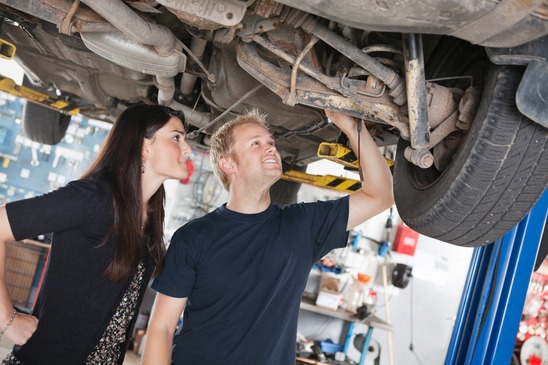How old is your car? Is it brand new? Five years old? Ten years old? Twenty years old?
 Cars of today are capable of making it a lot further than they were even just a few short years ago. To keep cars in top running order, regular maintenance is needed. But just like cars have changed and improved over the years, so to has the way we should regularly maintain our cars.
Cars of today are capable of making it a lot further than they were even just a few short years ago. To keep cars in top running order, regular maintenance is needed. But just like cars have changed and improved over the years, so to has the way we should regularly maintain our cars.
People still think of regular car maintenance in much the same way as we did decades before. Yet that may be where your maintenance mistakes begin. Every car has a supplied maintenance schedule – in the owners manual that came with your car, or in a a separate maintenance log book. A few minutes looking through this guidebook and assessing the requirements needed with your make and model can help you avoid maintenance mistakes that do little to help maintain your car.
Proper tire maintenance
Tires leak – it’s a fact of life. Therefore they need occasional checking to make sure they are still in good working order. Under or overinflated tires wear out sooner and can put you at risk under emergency maneuver situations, so it is important to check. Furthermore tires on the front of your car wear differently than on the back of your car – making tire rotation necessary on a periodic basis. How often? At least twice a year – winter and summer extremes can and do cause havoc on your tires.
Wipers
Colorado gives you all the extremes. Hot dry summers. Cold wet winters. The only way to avoid hitting things is if you can see them – something that can be difficult if your wipers aren’t working properly. And under extremes, wipers dry out and fossilize into noisy and useless tools. To avoid a common maintenance mistake – and give yourself the edge on keeping your car up to date – replace wipers at least once per year.
Tune ups
Remember when tune ups were necessary on every make and model? Well no more. Today’s cars don’t have valves that need adjusting or carburetors to fiddle with. Instead, everything inside your car is controlled and monitored by computer. Sure, belts and other parts will need the occasional adjustment or replacement. But overall, your car will happily carry you from place to place in a much more reliable way.
Oil changes
As long as a car runs on oil, you will need to replace it on occasion. But the old rule of every 3,000 miles may not be true anymore. Today, engine design and lubricants make oil changes something that needs to be performed when the schedule calls for it. Check with your owners manual – some cars can go 10,000 or even 15,000 miles between oil changes.
Brakes
One of the most important parts of your car are your brakes. When they squeak, make noises, sound or feel funny in response, its time to talk to your mechanic. Its never worth putting you or your family at risk to try and squeeze a few more miles out of your brakes.
